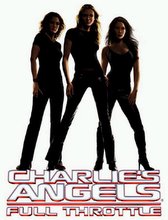5 key words useful to my independent study
Pleasure
This is motivating factor in the consumption of media texts.
Pleasure has often been ignored by researchers seeking to explain the motivation of audiences but is reflected in uses and gratifications theory, self-gratifying and consumption orientated cultural environment
This key word is useful to my independent study because it is included in my question and my whole study focuses on pleasure and how films pleasure men to entertain them.
Feminism
This is political movement to advance the status of women by challenging values, social constructions and socioeconomic practices which disadvantage women and favour men.
The movement emerged from the liberations culture of the 1960’s, although individual feminists argued for women’s rights from a much earlier time.
Feminism has provided an important perspective for the critique of media products, especially from the standpoint of representation and has sought to challenge dominant ideologies which reinforce patriarchal values.
Feminism encompasses various perspectives, e.g. black feminism, liberal feminism, Marxist feminism, radical feminism and post-feminism.
This is an important key word because my independent study it focuses on representation on women and a talk about feminism and how the roles of woman is changing in contemporary society.
Male gaze
Male gaze a term used by Laura Mulvey in her essay ‘Visual pleasures and narrative cinema’ (1975). This is what she used to describe what she saw as the male point of view adopted by the cinema for the benefit of an assumed male audience.
Mulvey viewed the practice of the cinema lingering on woman’s bodies as evidence that woman were being viewed as sex objects for the gratification of men. She argued that the central active characters in films are male and that the male audience identifies with them in their viewing of the passive females. Woman in the audience are also positioned by the narrative to identify with the male gaze and see the world through male eyes.
This is useful because I will be mentioning Laura mulvey’s theory on male gaze because I am going to do my study on women being represented as sex objects and how the male audience views them.
Representation
This is the process whereby the media construct versions of people, places and events in images, words or sound for transmission through media texts to an audience.
Representation provides models of how we see gender, social groups, individuals and aspects of the world we all inhabit. They are ideological in that they are constructed within a framework of values and beliefs. Representations are therefore mediated and reflect the values systems of their sources. No representation is ever real, only a version of the real.
Representations are part of cultural mythology and reflect deep-seated values and beliefs, e.g. of such places as the north of England, Scotland and America.
Representation is the key to many media debates and is usually described as being positive or negative, depending on the view of the group being represented. Achieving positive representations (versions that they agree and approve of) has been a goal of minorities groups who have criticised the perceived negatively of media stereotypes e.g. gays, ethnic minorities, religious minorities, disability groups and woman.
My study is on the representation of woman in films and how they are being represented by the audience especially the male audience.
Sexism
A representation that discriminates on the basis of sex, especially against woman, which is seen to derive from and sustain patriarchy.
Some feminists would see any media representation of woman that confirmed a stereotype as sexist, for example, the display of women’s bodies as sex objects in lad’s magazines for the entertainment of men.
In a post-feminists environment, challenges are launched at representations of men that show them as sex objects or as being humiliated at the hands of women.
This is a key word because males are seen to be dominating (patriarchy) and sexist against females. Stereotype on woman are sometimes seen as sexist such as woman’s bodies displayed as sex objects in male magazines to entertain them.
Thursday, September 21, 2006
Subscribe to:
Post Comments (Atom)

No comments:
Post a Comment